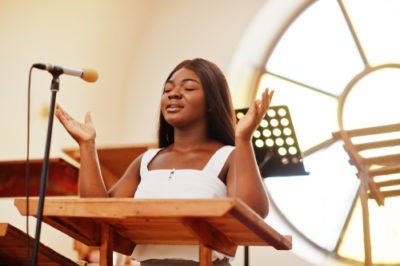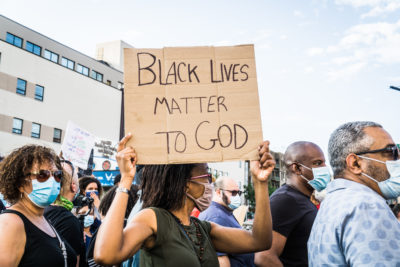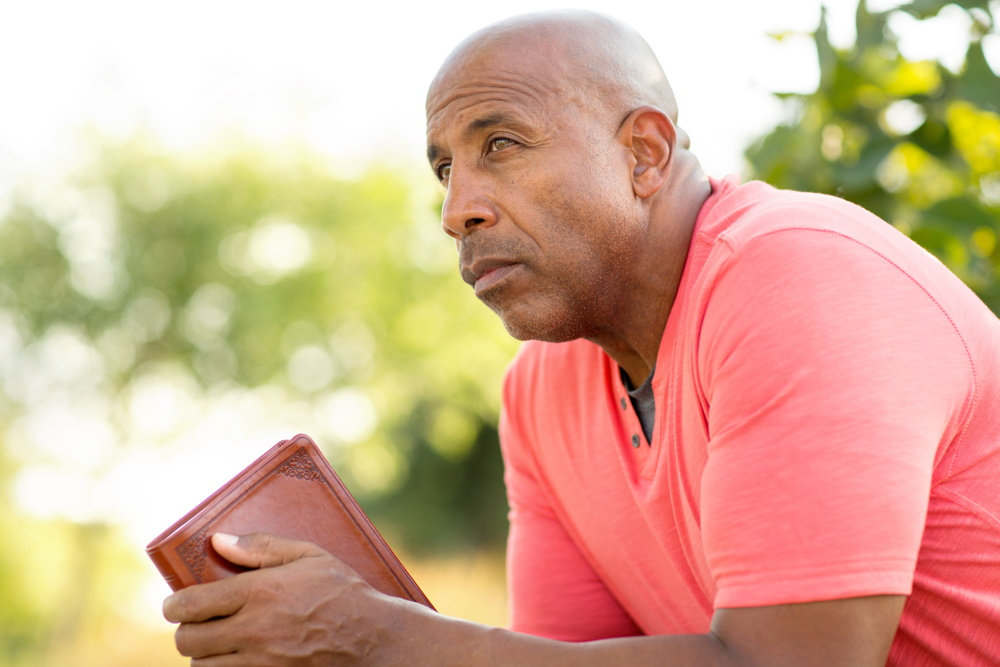A new report by the Pew Research Center surveyed Black Americans about religion, faith and spirituality. This comprehensive and in-depth report explores the role race plays in Black Faith, the religious affiliations of Black Americans and how views on politics, social justice, gender and sexuality vary across denominations and demographic groups.
Comprised of Black Americans and Black Immigrants, the survey covers a range of ages. From adults born before 1946 to millennials, black people of faith have different views of what religion and spirituality mean in today is society.
HOW BLACK AMERICAN’S WORSHIP
Most black worshippers attend predominately-black services. 60% of black adults prefer black congregations where the clergy is also black. However, in contrast, younger black adults seem less concerned with the racial makeup of their worship services. 44% of Generation Z and 45% of millennial worshipers attend multi-racial or predominately white congregations. While most black people attend black services, many said it they were open to more diversity in their churches.
The protestant faith remains the primary faith of Black Americans with 66% identifying as Protestant. 6% identify as Catholic, and 3% identify as other (i.e.: Jehovah Witness). Increasing are the number of Black Americans who identify as agnostic or atheist. This number is higher among Millennials and Generation Z at 33% and 28% versus 11% of Baby Boomers.
 THE IMPORTANCE OF TRADITION IN WORSHIP
THE IMPORTANCE OF TRADITION IN WORSHIP
What drives Black Americans to their worship services are a variety of factors primarily rooted in traditions in Black history and culture. The Black Church combined Christian worship with African Spiritual traditions that allowed them to hold on to their culture post slavery.
The Congregational Experience
The traditions shared in Black worship services are rooted in Black History and Culture. The songs, “call and response” style sermons and expressive forms of worship such as speaking in tongues, shouting and dancing.
Sermons related to the Black Experience
With the birth of the black church came a space where pastors could speak on the struggles of Black Americans using Biblical examples to convey hope. The use of sermons to speak on civil rights, equality and justice is still central to many predominately-black churches.
Safe Spaces Free from Discrimination and Discomfort
Whites and members of the Ku Klux Klan often attempted to prevent Blacks from worshiping with whites post slavery. Segregation also created environments where even church services were separated by race. The creation of the black church provided an environment of community that remains today. These houses of worship allowed Black people of faith a space to gather where they could worship without the burden of racism.
These traditions are rooted in history and culture and while they are still alive today, there is a growing generational gap between younger adults and older generations about the relevance and importance of the Black Church. Younger adults are increasingly struggling with the role of faith in their lives and issues in society that are important to them.
 THE BLACK CHURCH AND SOCIAL JUSTICE
THE BLACK CHURCH AND SOCIAL JUSTICE
Faith and the Black Church has always been rooted in social justice and change. Once the centers of community, the black church did more than provide spiritual edification, they were centers of education and social services. When faced with racism, segregation and hate, Black Churches became not only safe spaces to worship but also spaces to organize, rally and plan. This is evident in how the Black Church was central to the Civil Rights Movement giving birth to many of the movements leaders.
The study suggests that young people no longer view the black church as a place to launch social justice campaigns and address important issues in society. Driving that feeling are today’s issues that are more complex. In addition to racial equality and justice, young people are concerned with hot button topics like abortion, gender identity and sexuality, the environment and gender equality. The Black Church’s strong response against or lack of response does not go unnoticed by younger generations.
Many question the strength of the Black Church, particularly with such a divisive political climate, racial unrest and continued inequities faced by Black Americans. Part 2 of this report will explore how much “worldly matters” influences the spiritual lives of Black Americans.
To read the Pew Research Center’s report on Faith and Black Americans click here.
Danielle Sanders is a journalist and writer living on the Southside of Chicago. Find her on social media @DanieSandersofficial.




